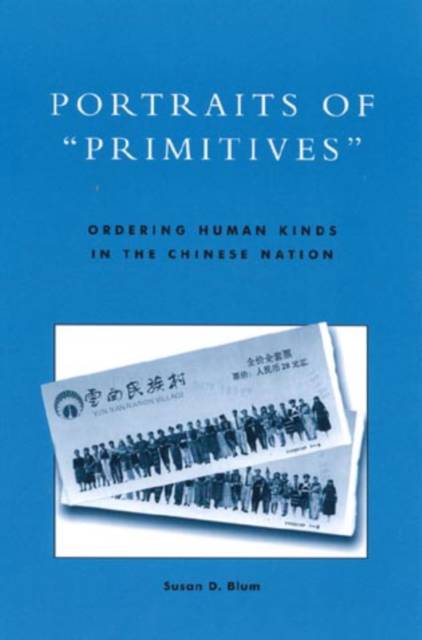
Nos liseuses Vivlio rencontrent actuellement des problèmes de synchronisation. Nous faisons tout notre possible pour résoudre ce problème le plus rapidement possible. Toutes nos excuses pour la gêne occasionnée !
- Retrait gratuit dans votre magasin Club
- 7.000.000 titres dans notre catalogue
- Payer en toute sécurité
- Toujours un magasin près de chez vous
Nos liseuses Vivlio rencontrent actuellement des problèmes de synchronisation. Nous faisons tout notre possible pour résoudre ce problème le plus rapidement possible. Toutes nos excuses pour la gêne occasionnée !
- Retrait gratuit dans votre magasin Club
- 7.000.0000 titres dans notre catalogue
- Payer en toute sécurité
- Toujours un magasin près de chez vous
Portraits of 'Primitives'
Ordering Human Kinds in the Chinese Nation
Susan D Blum
Livre relié | Anglais
185,95 €
+ 371 points
Description
Ethnicity is a highly politicized issue in contemporary China. Twentieth-century nation-building has been intimately involved with classification of China's fifty-five ethnic minorities and with fostering harmony and unity among nationalities. Officially sanctioned social science classifies the majority group, the so-called Han, at the pinnacle of modernization and civilization and most other groups as "primitive." In post-socialist China, popular conceptions of self, person, and nation intersect with political and scholarly concerns with identity, sometimes contradicting them and sometimes reinforcing them. In Portraits of "Primitives," Susan D. Blum explores how Han in the city of Kunming, in southwest China, regard ethnic minorities and, by extension, themselves. She sketches "portraits," or cognitive prototypes, of ethnic groups in a variety of contexts, explaining the perceived visibility of each group (which almost never correlates with size of population). Ideas of "Hanness" can be understood in part through Han desire to identify unique characteristics in ethnic minorities and also through Han celebration of the differences that distance minorities. The book considers questions of identity, alterity, and self in the context of a complex nation-state, employing methods from linguistic anthropology and psychological anthropology, as well as other forms of cultural analysis. Providing nuanced views of relationships among political, scholarly, and popular models of identity, this book will be an invaluable guide for those working in China studies, anthropology, and ethnic studies.
Spécifications
Parties prenantes
- Auteur(s) :
- Editeur:
Contenu
- Nombre de pages :
- 250
- Langue:
- Anglais
Caractéristiques
- EAN:
- 9780742500914
- Date de parution :
- 13-12-00
- Format:
- Livre relié
- Format numérique:
- Genaaid
- Dimensions :
- 158 mm x 228 mm
- Poids :
- 453 g







